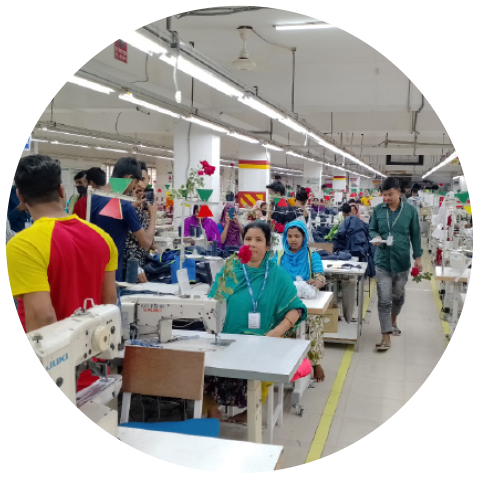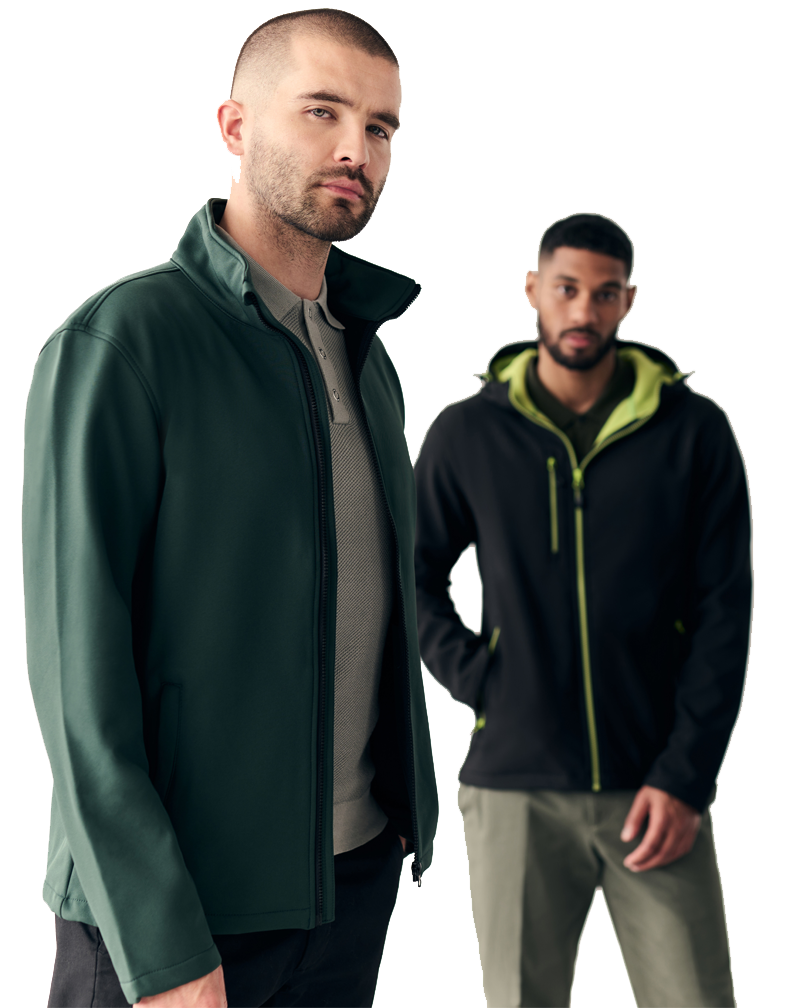
Committed to sustainable fibres in every product by 2025
OUR MISSION:
To sell great quality sustainable workwear, well-designed, well-priced and well-marketed

PURPOSE
The Regatta Groups corporate responsibility memberships showcase our commitment to fair labour, sustainability, and environmental responsibility. Through the Ethical Trade Initiative we are committed to providing good, safe working conditions to all workers within our supply chain.
The Sustainable Apparel Coalition guides us in reducing our environmental impact, and we use the Higg Index to ensure accountability for our social and ecological practices.
Our involvement with the UNFCCC reflects our active role in global climate change efforts, and all of these partnerships underscore our brand’s dedication to responsible business practices, highlighting that ethics and sustainability are at the heart of what we do.
PEOPLE
For over 10 years the Regatta Group have supported a primary school in the rural Savar area of Dhaka Bangladesh. The school offers 260 children a safe learning environment, hot meals every day, access to an education and a chance to reach their very best potential.
In our factories in Bangladesh we run a Health and Education Programme, facilitated by a local NGO, educating women on health, hygiene, nutrition and finances in a safe space environment.
Closer to home, we’ve joined forces with Band of Builders, a registered charity aiding individuals in the construction industry facing life-changing illnesses or injuries.

PLANET
Sustainability is ingrained into our Group operations, and we have committed to net zero emissions by 2050. Our default method of transport is sea vessel when bringing our products to market.
In the UK and Poland our DC operations keep road and truck usage to a minimum through close proximity to port. We support electric vehicles for both company cars and our employees through an EV salary sacrifice scheme.
Our UK operations have solar installations in line with our commitment to reduce emissions. Through the UNFCCC, our Group completes the CDP report to track and monitor our emissions, proudly achieving grade B last year. www.cdp.net/en


PRODUCT
In 2020, we launched a range of products made from 100% recycled fibres, sourced from Global Recycled Standard (GRS) certified fabric mills.
Our strategy has since repositioned to incorporate sustainable fibres into all our products and packaging whether these are synthetic or natural fibres. Embracing the ethos of the Better Cotton Initiative, we contribute to the global movement for sustainable cotton, reinforcing our commitment to responsible and conscientious business practices.
Our dedication to product performance and safety is maintained through our own quality assurance programme, adherence to the REACH regulation, and a rigorous testing procedure on all components used every season.
Committed to sustainable fibres in every product by 2025
